STEM-Lead

Developing STEM Teacher Leaders in Classroom Management, Engineering Design & Induction
Seeking Experienced Secondary Master STEM Teachers
The teachHOUSON program at the University of Houston launched a program as part of the National Science Foundation grant, Developing STEM Teacher Leaders in Classroom Management and Induction (STEM-Lead).
The STEM-Lead program seeks 15 experienced STEM teachers with a master’s degree to participate in a five-year program addressing the STEM teacher shortage and retention. The goal is to address this crisis by developing competent STEM teacher leaders in high-need school districts to serve as Master Teacher Fellows (MTFs). MTFs will lead enhanced induction efforts for novice teachers (years 1–3), focused specifically on classroom management (CM) and engineering design.
About the Program
The STEM-Lead program is a partnership between UH’s College of Natural Sciences and Mathematics, College of Education, and Cullen College of Engineering, and the National Math and Science Initiative (NMSI). See our Frequently Asked Questions page.
Eligibility Requirements
- Hold a conferred master’s degree in a STEM or Education field
- Certified to teach secondary* 7–12 STEM content fields (e.g., Science 7–12, Life Science 7–12, Math 7–12)
- *This includes 4–8 Math and 4–8 Science who are currently teaching 7th or 8th STEM.
- Currently teaching secondary STEM courses
- 3+ years of completed teaching experience as of the 2023-2024 school year
- United States citizen or Permanent Resident
- Agree to a 5-year commitment
- Has not participated in a current or prior Noyce Track 3 grant (NSF)
- Must reside in the Greater Houston area. See FAQs for further information.
Overview & Benefits
- 15 MTFs will be selected for a five-year program.
- MTFs will receive financial support through salary supplements of $100,000 ($20,000 for each of 5 years).
- MTFs will receive training and support in CM and engineering design with the opportunity to mentor preservice and in-service teachers in CM and engineering design.
- Enhance the teachHOUSTON induction program through MTFs professional development leadership in the areas of CM, engineering design and other STEM topics and serve as induction mentors.
Application Process
- Complete the interest form.
- After the candidate has been screened for eligibility, an email with the application link will be provided.
- Complete the online application by the due date.
- Submit the following documents to thstemlead@uh.edu:
- Interest letter (cover letter)
- Resume
- Statement of Teaching Philosophy
- Three letters of recommendation including one from an administrator at your school or district
- Transcripts for undergraduate and master’s degree
- NOTE: Unofficial transcripts are acceptable for admissions purposes. Candidates admitted to the program must provide official transcripts to the teachHOUSTON STEM-Lead team.
Application Due Dates
- Application Window: September 6 – November 1, 2024
- Interviews: October/November
- Final Decision: December
- STEM-Lead Starts: January 2025
Want to Learn More about STEM-Lead?
Watch a recording of an informational webinar from September 25, 2024.
Please direct questions and inquiries to thstemlead@uh.edu.
Meet the Team
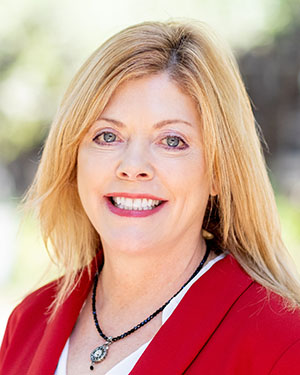
Paige K. Evans, Ed.D.
Paige K. Evans, Ed.D., is a Clinical Professor and Co-Director for the teachHOUSTON program at the University of Houston (UH) in the College of Natural Sciences and Mathematics where she teaches and oversees courses in STEM teacher education. She has secured $18 million in grant funding and is the PI/Co-PI on several federal grants with goals to broaden STEM participation and improve STEM literacy for all. She frequently publishes and presents on her research interests that include STEM teacher preparation and STEM education. Moreover, she co-authored the book, Preparing Teachers to Teach the STEM Disciplines in America’s Urban Schools. Dr. Evans served as the president of the UTeach STEM Educators Association and was an American Physical Society Physics Teacher Education Coalition Fellow. She is the recipient of five UH Teaching Excellence Awards including the 2024 Group Teaching Excellence Award and the 2022 UH Distinguished Leadership in Teaching Excellence Award. Additionally, she was honored with the American Educational Research Association Narrative Inquiry Outstanding Publication Award (2019; 2024), the American Physical Society for Improving Undergraduate Physics Education Award (2019 – 2021), and the NSF STEM for all Video Showcase Award (2021; 2022). Prior to joining the UH faculty in 2008, she spent 18 years as a math/science educator and served in various leadership positions.
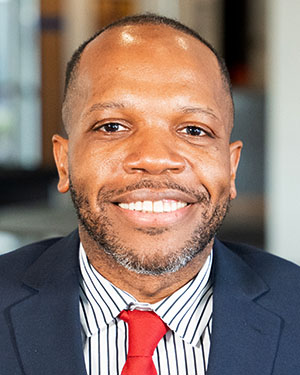
Jerrod A. Henderson, Ph.D.
Jerrod A. Henderson, Ph.D., (“Dr. J”) is an Assistant Professor in the William A. Brookshire Department of Chemical and Biomolecular Engineering in the Cullen College of Engineering at the University of Houston (UH).
Dr. J has dedicated his career to increasing the number of students who are in pathways to pursue STEM careers. He believes that exposing students to STEM early will have a lasting impact on their lives and academic pursuits. He co-founded the St. Elmo Brady STEM Academy (SEBA). SEBA is an educational intervention that introduces underrepresented and underserved fourth and fifth-grade students and their families to hands-on STEM experiences.
Dr. J is the immediate past Director of the Program for Mastery in Engineering Studies (PROMES, pronounced “promise”), a program aimed at increasing engineering student achievement, engagement, and graduation rates. His research group seeks to understand engineering identity trajectories and success mechanisms throughout lifespans using action-based participatory research and novel methodologies such as photovoice, IPA, and draw-an-engineer and the development of research-informed interventions to improve student success.
He was most recently recognized by INSIGHT Into Diversity Magazine as an Inspiring STEM Leader, the University of Illinois at Urbana-Champaign with the College of Liberal Arts & Sciences (LAS) Outstanding Young Alumni Award, Career Communications Group with a Black Engineer of the Year Award for college-level promotion of engineering education and a National Science Foundation CAREER Award in 2023 to advance his work that centers engineering identities of Black men in engineering.
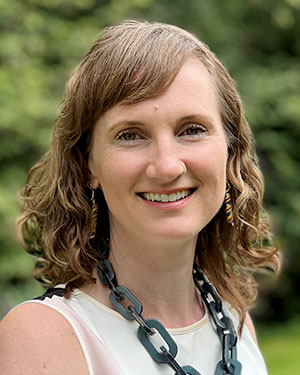
Virginia Snodgrass Rangel, Ph.D.
Virginia Snodgrass Rangel, Ph.D., is an associate professor of educational leadership and policy studies at the University of Houston. Her research interests include student pathways into STEM education, STEM teacher and principal preparation, and mentoring. Together with Dr. Henderson, she is the co-director of the Center for Underrepresented and Underserved Student Pathways into Engineering (CU2SP). Prior to joining the University of Houston, she was the Associate Director of Research for the Center for Digital Learning and Scholarship at Rice University.
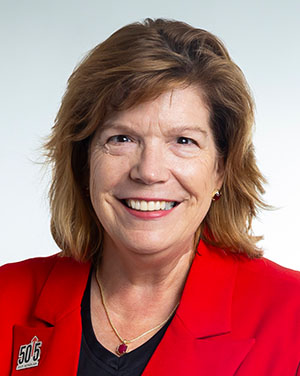
Ramona Mateer, M.Ed.
Ramona Mateer, M.Ed., is a STEM teacher education lecturer with the teachHOUSTON program at University of Houston which prepares STEM majors to teach in high-need secondary schools. She is dedicated to supporting science and math teachers developing the skills and passion for teaching that results in quality, best practice STEM education at the secondary level for all students. She co-developed the award-winning Accelerated Certification Pathway for STEM – University of Houston and is a Co-Pi on federal grants intended to grow STEM participation and retain STEM teachers. Her interests focus on culturally responsive classroom management in the inquiry environment. She is a proud University of Houston graduate and holds a Master of Education in Curriculum and Instruction from the University of Texas at Arlington. She was named 2007 Katy ISD District Teacher of the Year and awarded the 17th Annual Christa McAuliffe in Search of Excellence Award, West Houston Chamber of Commerce and received the a 2023-2024 University of Houston Teaching Excellence Award for Group Teaching. Prior to joining teachHOUSTON, she taught science in a local large suburban school district, where she also worked as a science instructional coach, participated in the 2006 Science TEKS rewrite and developed science curriculum grades K-8.
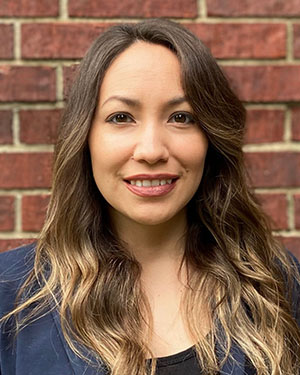
Amanda Campos, M.Ed.
Amanda Campos, M.Ed., is a Master Teacher with teachHOUSTON, where she plays a pivotal role in preparing future STEM educators. She earned her master’s degree in Curriculum and Instruction in STEM from the University of Houston and is currently pursuing a Ph.D. in Educational Leadership Policy at Texas Tech University. Her work focuses on advancing STEM education, teacher preparation, and policy advocacy for the Texas teacher workforce. At teachHOUSTON, Amanda leads the development of the yearlong residency program, coordinates the induction program, and serves as a Co-Principal Investigator on several grants designed to strengthen the program’s impact. She also teaches undergraduate STEM education courses, sharing her expertise and passion for inquiry-based learning and culturally responsive pedagogy. Before joining teachHOUSTON, Amanda worked in a local school district as a middle school science teacher, intervention specialist, and testing coordinator. Her diverse experience includes mentoring first-year teachers, developing curricula, and presenting best teaching practices at conferences across the country.
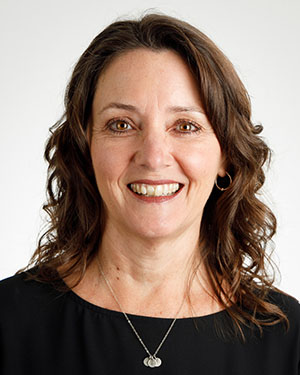
Karen McIntush, Ph.D.
Karen McIntush, Ph.D., is a Clinical Assistant Faculty member with teachHOUSTON in the Mathematics Department at the University of Houston. She teaches a course for the STEM alternative certification pathway and serves as the Faculty Advisor for teachHOUSTON, where she facilitates students’ progress through the teachHOUSTON program. She received her Ph.D. in Curriculum and Instruction from Texas A&M University and has over 20 years of experience teaching and researching in higher education. She is the Co-PI on a Gates Foundation grant and a Houston Endowment grant. She also manages various NSF grants, participates in grant writing, and conducts research for the teachHOUSTON program. She has numerous presentations at national and international conferences, has several publications, and won various writing awards for her work. Her current research is primarily focused on recruiting, preparing, and retaining secondary STEM teachers, specifically in urban environments. More specifically, Dr. McIntush conducts research on the various teachHOUSTON program offerings, including the impact of the classroom management course on secondary STEM student teachers, the teacher residency pathway, pathways for teacher certification, and induction and mentoring efforts to support novice STEM teachers.
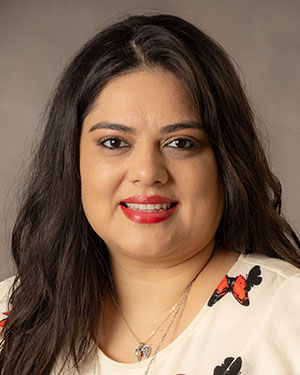
Karla Adelina Garza, Ph.D.
Karla Adelina Garza, Ph.D., is a Post Doctoral Research Fellow for teachHOUSTON at the University of Houston. She received her doctoral degree in Curriculum and Instruction from Texas A&M University. Her narrative inquiry dissertation research focused on teachers who were migrant farmworker students, and it has received the American Educational Research Association, Narrative Research Special Interest Group Outstanding Dissertation Award and the American Association for Teaching and Curriculum, John Laska Dissertation Award Dr. Garza currently serves as the Scholarship Director for the PanAmerican Student Forum of Texas. She previously taught multiple levels of Spanish at the secondary level in Northwest Houston. Her educational research interests include technology in education and professional development for educators.
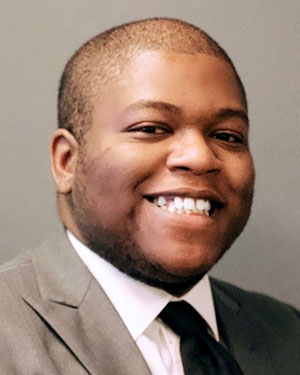
KaDarrius James, M.A.
KaDarrius James, M.A., is the Program Director for the teachHOUSTON program at the University of Houston. He received his master’s degree from Sam Houston State University in Digital Media. He has worked in student services such as academic advising, admissions, and recruitment for many years.
Funding

This project is supported in part by a grant from the National Science Foundation (DUE 2345134). Any opinions, findings, and conclusions or recommendations expressed in this material are those of the author(s) and do not necessarily reflect the views of the National Science Foundation.